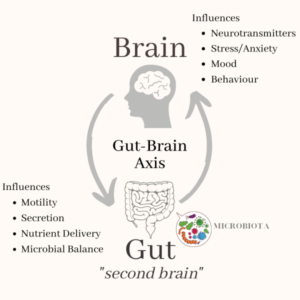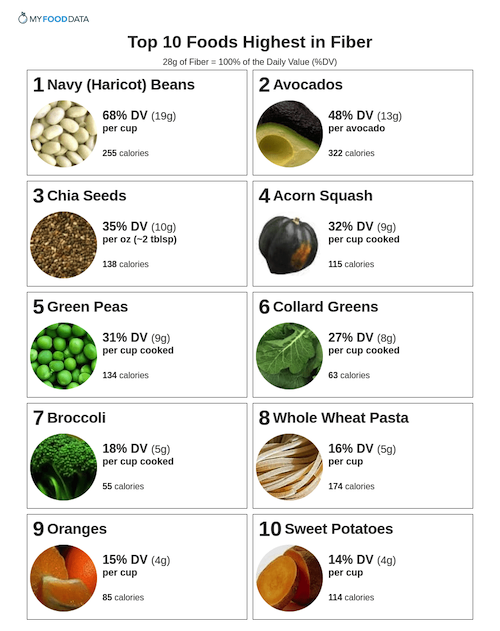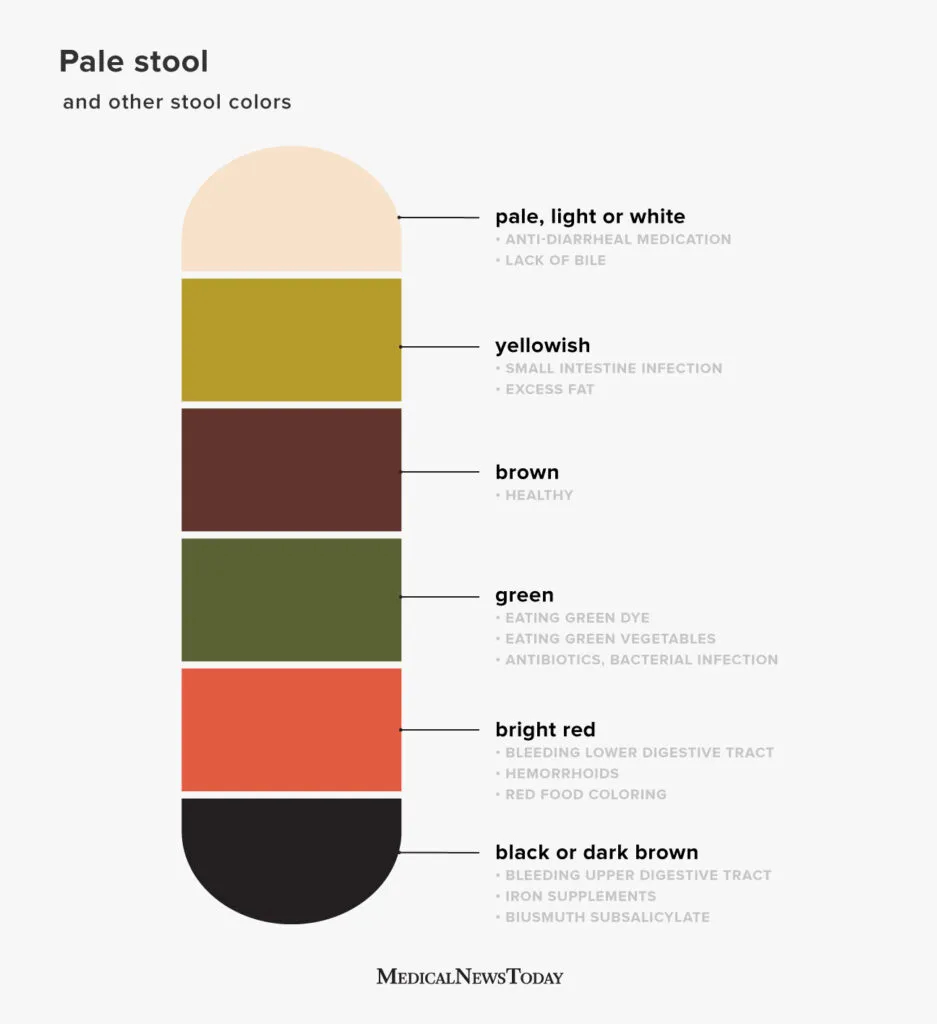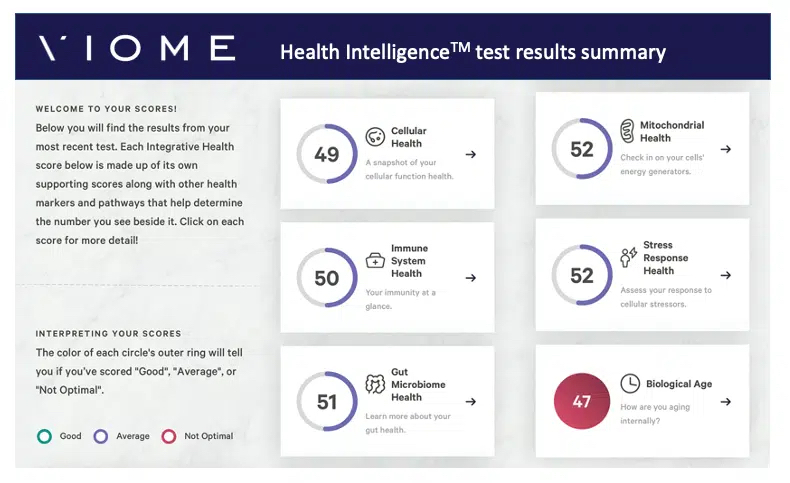Test Your Gut Health — Here’s How
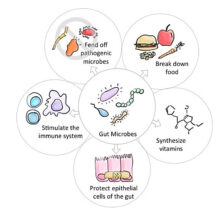
Test your gut health to discover how those gut bacteria are treating you. There’s trillions of them and they matter profoundly, because the good bugs can help make you healthy and the bad bugs can make you sick. Learn what to do.
 Test your gut health, because the trillions of microbal bacteria residing there (the gut microbiome) have a profound impact on your overall health. Those bugs impact nearly every aspect of your health, from mood to girth to how well you age.
Test your gut health, because the trillions of microbal bacteria residing there (the gut microbiome) have a profound impact on your overall health. Those bugs impact nearly every aspect of your health, from mood to girth to how well you age.
Our microbiome is the community of microorganisms, such as fungi, bacteria and viruses, that live on us and inside us, and with whom we have an extremely important symbiotic relationship.
There are many more microbes on and in you than the human cells that make your body. We depend on this vast army of microbes to stay alive. A microbiome protects us against germs, breaks down food to release energy, produces vitamins, and impacts our immunity, inflammation — even your mental health.
Given the significance of the gut microbiome on our health and longevity, it’s a good idea to learn how to test your gut health.
Let’s dig in…
Content
Test your gut health with educated guesses
- What kind of food and drink you consume
- Processed foods, sugar, sugar substitutes and fiber
- The shape and color of your stool
- 13 other signs
- Test your gut health with better educated guesses
- Zoe program
- Viome
- Ombre (my results)
- Reliability of functional stool analysis
- Your Takeaway
Introduction
Scientists have only recently come to realize that the microbiome is as important as the human genome itself, and they now realize that the most significant part of the total human microbiome is the gut microbiome. It has become a focal point for studying the root causes or amplifiers of chronic diseases, and aging itself.
Pubmed, the public database of biomedical and life sciences literature, records 47,344 results about the gut microbiome, and likely many more by the time you read this. Should you go to Pubmed, you’ll notice that nearly all of the “gut microbiome” studies have been done over the last few years. Before that scientists knew little about how the microbiome impacts our health. Now it is known to be so important that the microbiome is often referred to as our “second brain”, or “new organ”.
And that’s why you need to test your gut health.
Other than obtaining the consult of a gastrointestinal specialist, there are two general ways to test and assess the health of your gut and gut microbes:
- Educated guesses, and
- Better educated guesses
Yes, guesses, unfortunately, but some better than others. So, what I’m suggesting is that right now there’s no absolutely definitive test that can tell you the precise types and numbers of the bacteria in your gut and how they are impacting your health.
But that doesn’t mean you should simply shrug and forget about it, because what is known is that gut microbiota do have an enormous influence on your health, and you can get a good sense whether yours supports or undermines your health.
We’re going to make some educated guesses about your gut health relative to its microbiome by examining what you eat, and your health status.
The aim is to learn how to test your gut health.
Test Your Gut Health with Educated Guesses
You can test your gut health on your own to get some sense for its health by examining:
- What kind of food and drink you consume,
- The shape and color of your stool,
- And 13 other signs.
Turns out, this topic is very popular if TikTok is a good barometer. So, let’s start with TikTok; not because you can trust anything that you see there, but because it indicates what people are interested in.
The New York Times wrote an article entitled, Why Is Gut Health Taking Over TikTok? (You might not be able to access it if not a subscriber.) It reports that “Videos tagged with #guttok have garnered nearly 400 million views”.
What is #guttok you ask?
Well, Google tells us that:
“gut health is the latest buzzy topic on TikTok. Under hashtags like #guttok, #guthealth and #guthealing, influencers and every day users alike are posting thousands of videos, sharing stories about their gut health struggles and remedies. (source)
“#Guttok has over 500 million views on TikTok” as of July 20, 2022. (Ibid)
Many of these Tik Tok creators offer quick solutions to gut health, such as drinking olive oil or aloe vera juice, but as quoted by the Times’ article, Dr. Justin Sonnenburg, a professor of microbiology and immunology at Stanford, says:
“If somebody is claiming to have something that will immediately turn gut health around, you should be skeptical of that.”
It’s not that some olive oil or aloe vera juice is worthless, but that neither is sufficient to make much of a dent in improving your gut microbiome; for that you need to nearly eliminate some types of food, and develop a hearty appetite for other types of food.
Evaluate what you eat
Dr. Sonnenburg goes on to emphasize that gut-related health conditions, particularly irritable bowel syndrome, have spiked over the past few decades. He attributes this surge to another surge — a surge in the consumption of processed and packaged foods.
vs
A global survey published in 2021 of over 73,000 adults from 33 countries found that more than 40% of respondents had gastrointestinal disorders, like irritable bowel syndrome or constipation. Chronic, unexplained abdominal pain, constipation and diarrhea are all signs of poor gut health.
So, the first thing to look at in order to make an educated guess about the health of your gut is to make an honest appraisal of what you eat and drink. And when you do that, consider how much of the food you eat is loaded with sugar or fiber.
The sugar is bad. The fiber is good.
Sugar is bad
A diet high in processed foods and added sugars can decrease the amount of good bugs in your gut and increase the bad bugs.
This imbalance can cause increased sugar cravings, which can damage your gut still further. High amounts of refined sugars, particularly high-fructose corn syrup, have been linked to increased inflammation in the body. Chronic inflammation can be the precursor to a number of diseases and even cancers, and that’s why it’s often termed, “inflammaging“.
If your sweet tooth is in the driver’s seat, consider using one of three sugar alternatives that will not damage your health:
- Erythritol (See update below)
- Xylitol
- Stevia
I’ve tried all three. I prefer erythritol, with second place going to xylitol. I don’t care for the taste of stevia. But, of course, your taste buds might be tuned differently than mine.
Click here for Erythritol update
A study published in the journal Nature Medicine suggests a link between erythritol and cardiovascular events such as clotting, stroke, and heart attacks. However, the data are not conclusive, and more research is needed to confirm the findings.
The study was conducted on people with preexisting cardiac risk factors, so the results should not be extrapolated to the general population. The European Association of Polyol Producers declined to comment, saying it had not reviewed the study. The discovery of the connection between erythritol and cardiovascular issues was purely accidental, and the researchers were not even looking for it. Erythritol is also purported to have antioxidant properties and endothelial protective effects; however, more research is needed to confirm these findings as well.
In an abundance of caution, it might make sense to limit erythritol in your diet for now.
Citations:
[1] https://time.com/6260092/erythritol-heart-attack-stroke-study/
[2] https://www.smithsonianmag.com/smart-news/artificial-sweetener-tied-to-risk-of-heart-attack-and-stroke-study-finds-180981714/
[3] https://www.cnn.com/2023/02/27/health/zero-calorie-sweetener-heart-attack-stroke-wellness/index.html
[4] https://www.psychologytoday.com/us/blog/the-modern-brain/202303/erythritol-bad-for-brain-and-body
[5] https://www.nih.gov/news-events/nih-research-matters/erythritol-cardiovascular-events
[6] https://nutritionfacts.org/video/how-much-erythritol-sweetener-is-too-much/
Fiber is good
The other major thing to consider when evaluating your diet is fiber. Eating fibrous foods are essential for a healthy gut microbiome.
You can make a pretty good guess about the health of your gut microbiome by knowing how much dietary fiber you consume each day.
If, for instance, you’re one of the 95% of Americans, or 97% of Canadians who eat less than 25 grams of fiber per day, and you suffer from leaky gut, SIBO, moodiness, rheumatoid arthritis or obesity — it could be that populations of harmful gut bacteria have overwhelmed the good guys.
Currently, dietary fiber intakes among adults in the United States average about 15 grams a day, about half of what you need (UCSF Health: Increasing Fiber Intake). Europeans do better. Overall, dietary fiber intake for adults living in European countries was 18–24 grams per day for men and 16–20 grams per day for women (The Health Benefits of Dietary Fibre).
Your total dietary fiber intake should be at least 25 to 30 grams a day from food, not supplements, although some can supplement the food you get from fiber, such as psyllium seed powder, or inulin.
If, despite your good intentions, you find that you’re not eating enough fiber, then go for psyllium husk powder and/or inulin. Mix either with water before a meal and chug it down. Not only will it help fill you up, but you’ll be feeding the good bugs in your gut.
The bottom line is that you can make an educated guess about the health of your gut by looking at your diet. If you regularly eat processed foods instead of whole foods, it’s likely that you’re not getting the nutrients nor the fiber you need for gut health, among many other things.
OK, we just took a look at what goes in our mouth, now let’s check the other end of the gastrointestinal tract.
Check your stool
Returning to the NY Times’ article, Dr. Rabia De Latour, a gastroenterologist at NYU Langone Health, says that if you’re concerned about your gut, pay attention to the consistency of your stool. you want them to be soft, smooth and sausage shaped.
Here’s the Bristol Stool Chart (and below) to help you determine how long your stool has been hanging out in your bowl. You don’t want it on either extreme, indicated here as Type 1 and 2 for too much bowl time, and Types 5 thru 7 as too little time. Types 3 and 4.
As long as you’re looking at your stool, note the color, and if it’s floating or sinking.
Floaters indicate there’s fat in the stool, which means you’re not properly digesting fats. If it immediately sinks, it could be that there are too many nutrients still in the stool. In this case, you could first try a digestive enzyme, and if that doesn’t help, speak to your doctor about checking your gallbladder and the digestive acids in your stomach.
Next, consider stool color:
Brown stool is healthy.
Pale or greenish-yellow stool could be a sign of bile duct obstruction and/or fat malabsorption which indicates poor digestion. If this continues, again, try some digestive enzymes and see a doctor to talk about getting your gallbladder checked.
Black or red stool could be a sign of internal bleeding and needs to be addressed by a doctor immediately. If you ate beets recently, that could be the reason.
Green stool could be a sign that you’re not digesting them well and that the nutrients may be literally going to waste. If you’re not already, try cooking your greens, or doing the digestive enzyme, doctor thing.
Yellow stool could be a sign of infection or intestinal inflammation and if that persists, get your doctor involved.
Other things you may be experiencing due to an unhealthy gut microbiome can include:
- Fluctuating body weight
- Leaky gut
- Food intolerance
- Depression or moodiness
- Yeast infections
- Frequent sickness
- Blemished or unhealthy looking skin
- Sinus issues
- Autoimmune disease
- Regular fatigue
- Achy joints
- Allergies
By and large, what we’ve just covered depends on your personal assessment, which by definition is subjective, and that’s why I’ve called all this “educated guesses”.
Next up are the “better educated guesses”. These are more objectively determined, as they depend on the assessments of a microbiome test.
Test Your Gut Health with Better Educated Guesses
Here’s what we’re going to cover in this section:
- Zoe Program
- Viome
- Ombre
- Reliability of functional stool analysis
Let’s begin with the most comprehensive expert-guided plan that I’m aware of, called Zoe, then to Viome, a company that adds some health tracking and guidance to its gut microbe analysis, and finally to Ombre, who offers the test I took.
Zoe Program
(Take the quick Zoe survey to learn how food effects your body.)
The Zoe program is based on the discoveries of an international study of personalized nutrition called Predict, which has been touted as the world’s largest research project designed to look at individual responses to food.
Predict followed more than 1,100 mostly healthy adults in the United States and Britain, including hundreds of identical and nonidentical twins.
The researchers collected data on a wide range of factors that influence metabolism and disease risk. They analyzed the participants’ diets, microbiomes and body fat. They took blood samples before and after meals to look at their blood sugar, hormones, cholesterol and inflammation levels. They monitored their sleep and physical activity. And for two weeks they had them wear continuous glucose monitors that tracked their blood sugar responses to different meals.
The researchers were surprised to discover that genetics played only a minor role in shaping a person’s microbiome. Identical twins were found to share just 34% of the same gut microbes, while people who were unrelated shared about 30% of the same microbes.
What the Predict study did find was that:
- Each person’s microbiome was shaped by what they ate, and
- The types of microbes in their guts played a strong role in their metabolic health.
The so-called good, or beneficial, gut microbes were more common in people who ate a diverse diet rich in high-fiber plants — like spinach, broccoli, tomatoes, nuts and seeds — as well as minimally processed animal foods such as fish and full-fat yogurt. They found that clusters of “bad” gut microbes were common in people who regularly consumed foods that were highly processed.
One common denominator among heavily processed foods is that they tend to contain very little fiber, and fiber is essential to nourish good microbes in the gut, as you know by now.
This is how the ZOE Program works:
- You get a comprehensive at-home gut & metabolic health test
- Gut health test
- Blood fat test
- Personalized insights report
- Real-time blood sugar sensor
- Standardized test meals
- Gut health report
- You get personalized support to reach your goals
- Personalized program
- Scores for every meal
- Unlimited coach support
Consider doing the Zoe Program if you have gut issues or health problems that relate to gut issues, and could use some coaching and diagnostic tools.
Functional Stool Analysis
Two prominent microbiome testing companies in the U.S. are Viome and Ombre. You order a kit that’s mailed to you. Then you put a scraping of stool into a sealable glass vial and send it back for analysis.
These functional stool analysis companies may have different methods of applying their magic to test and assess the health of your gut microbes. How the results are depicted can be different. But the overall aim is to provide you with the data that show the diversity of bacteria in your gut, and the balance between beneficial and harmful bacteria.
Viome
Viome is perhaps the biggest company that offers functional stool analysis, and quite a bit more. A trip to their website shows you that their test covers your:
- Biological age,
- Gut health,
- Oral health,
- Cellular and energy efficiency,
- Inflammation response,
- Brain and cognitive health,
- Immune system health, and
- Heart and metabolic health.
You get all that for about $350, depending on whatever discounts are available. They also offer two less comprehensive tests that range from $229 to $149 for the Gut Intelligence Test, which is the one that most closely resembles Ombre.
How accurate can they measure all that? I don’t know, but I’ll make a general assessment after we take a look at the test I took, Ombre.
Ombre
Ombre does not offer as many health metrics as Viome does, but at around $100, it’s quite a bit cheaper.
I’ll show you some screen shots of my test results.
My Overall Score was 82
 I do prefer the number 100 when it comes to percentages, but 82 ain’t bad.
I do prefer the number 100 when it comes to percentages, but 82 ain’t bad.
Click here to see how it was calculated
How does it contribute to health?
A lower Gut Score outside the provided range or on the low side of the range could indicate microbial imbalances which may be the cause of current or future symptoms affecting your overall health. What affects the gut score? Diet, prebiotics, probiotics, lifestyle, medication, toxin exposures, stress, sleep and environment.
The following is the breakdown of components that contributed to the overall score.
Score Breakdown
The 88% Diversity Score is encouraging, because gut microbial diversity is correlated with health aging. Centenarians tend to have diversified gut bacteria.
Click here to see how they were calculated
Diversity Score
How is it calculated?
Ombre calculates the Diversity Score using the Simpson’s Diversity Index. This preferred measurement takes into account both evenness and the overall number of unique bacteria species. To make it easy to understand, we convert the ratio into a percentage score based out of 100How does it contribute to health? Higher gut bacteria diversity has been shown to be associated with more beneficial gut and overall health outcomes. Lower gut diversity has been associated with acute and chronic symptoms and disease. Diet has a significant impact on diversity. A more diverse diet (specifically, plant-based food sources) generally yields a more diverse microbial population. Lifestyle factors, such as exercise, impact diversity as well.
Comparison Score
How is it calculated?
The Comparison Score measures the difference between your bacteria levels against the “average” range derived from our database. If your sample has good bacteria levels that are considered low compared to “average” ranges, this score will be low. Should your sample have bacteria levels that are considered “average,” this score will be mid-range to high.How does it contribute to health?T he gut microbiota is made up of 100 trillion bacteria that have both beneficial and adverse effects on human health. High levels of deficient beneficial bacteria could contribute negatively to overall health or the symptoms you may be experiencing. Optimizing the gut ecosystem by nourishing beneficial bacteria and targeting imbalances would aim to increase this score.
I didn’t get too excited about the 100% Symptoms Score since it was based on my answers to a survey about various health parameters, and some of them are subjective.
Click here to see how they were calculated
Ecosystem Score
How is it calculated?
The Ecosystem Score measures the distribution of neutral, beneficial, and pathogenic bacteria. High Ecosystem Scores generally indicate more beneficial microbes are present in your sample.How does it contribute to health?The balance of the gut microbiota ecosystem has an effect on your overall well-being. Beneficial bacteria support metabolic, immune, mental, and skin health by producing metabolites that guard against pathogenic growth, toxins, and inflammation. Consuming plant-based fibers is crucial for bacteria to produce metabolites. A higher Ecosystem Score may indicate a more balanced gut due to more neutral or beneficial bacteria versus pathogens. A lower score may indicate a need to address pathogenic bacteria. Start optimizing the ecosystem by nourishing beneficial bacteria with plant-based fibers.
Symptoms Score
How is it calculated?
The Symptoms Score is based on a total count of 100. Fewer symptoms give you a higher score. In contrast, a low score would indicate many symptoms.How does it contribute to health? While other Ombre Score categories can provide insight into the balance of your gut microbiota, symptoms help determine how these imbalances are personally affecting your gut health and overall well-being. Optimize the gut microbiota ecosystem by selectively nourishing beneficial bacteria. Target the symptoms with strain-specific probiotics to increase this score.
Are these tests accurate?
This all looks very interesting, but there is some dispute about the accuracy of functional stool analysis tests.
A Google search on “Are stool microbiome tests accurate?” serves up many results attesting to the potential inaccuracy of such tests, such as:
“Scientists have not yet defined a healthy or normal gut microbiome that can reliably predict whether a person will develop a particular disease. Relying on stool samples for studying the gut microbiome is inaccurate as the microbiome in stool does not faithfully reflect the microbiome at the intestinal mucosa.” (source)
“The FDA has not approved home microbiome tests, meaning that it has not tested them for accuracy or safety. Microbiome tests cannot diagnose health conditions. People should only purchase these products if they are interested in finding out which bacteria are in their stool.” (source)
Despite the doubts about the accuracy of these tests, the technology is improving, and in my case, I was glad to confirm that my diet supports the health of my gut. (Yes, confirmation bias.)
In my opinion, if you think you have gut issues that have not been adequately addressed by you or your doctor, consider taking a test offered by Ombre or Viome, or do the Zoe Program.
Your Takeaway
Remember these four things:
- A healthy gut microbiome is essential for overall health, and yet testing your gut health is rarely done. If you’re experiencing chronic health issues that persist despite your efforts to ameliorate them, you could test your gut health, as I’ve detailed.
- The accuracy of gut microbiome tests are in doubt, but I think of it like I do my body fat scale — I know it’s not the exactly right number, but it’s not going to tell me I’m 10% body fat if I can grab a handful of abdominal fat. What I’m suggesting, is that Viome and Ombre may not be precise, but I bet they’re close.
- If you really need a helping hand, consider the Zoe program. You can select how much personal attention you get. It’s always helpful to get some coaching to help you make big changes to your life.
- If no test is interesting to you, then review your diet to see how much processed food, sugar and fiber you’re consuming. If you regularly eat the first two, but not the third — change that around!
If you found this post useful, please share.
Last Updated on July 7, 2023 by Joe Garma

